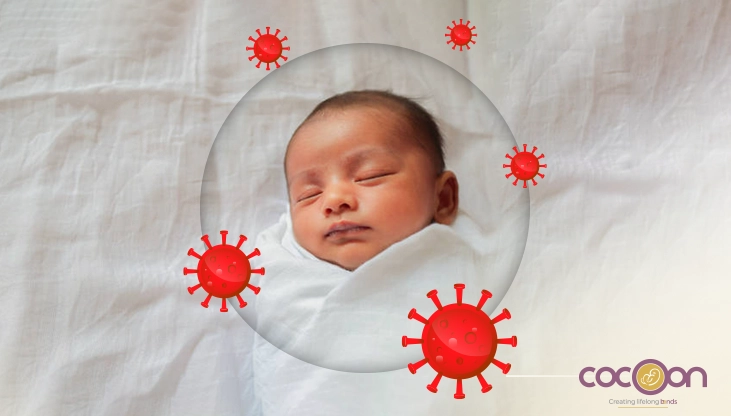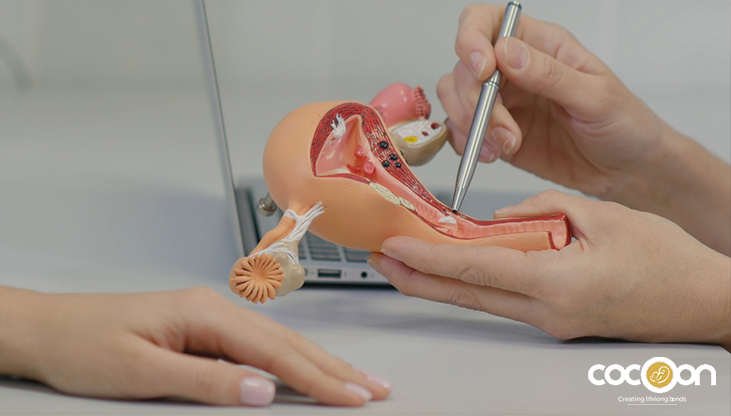Pregnancy is an incredible journey—filled with excitement, hope, and naturally, a few worries along the way. As a parent-to-be, one of your biggest concerns is ensuring your baby is growing and developing as expected. Fortunately, modern medical tools like the NT scan, or Nuchal Translucency scan, offer early insights into your baby’s health and can provide much-needed peace of mind.
If you're hearing about the NT scan for the first time, don't worry ! We are here to help you. In this blog, we’ll walk you through everything you need to know, breaking it down step-by-step.!
What Is an NT Scan?
Let’s start from the basics. NT scan stands for Nuchal Translucency scan. It is a special ultrasound test done between 11 to 14 weeks of pregnancy. The main purpose of the NT scan is to check if your baby is at risk for certain genetic problems like Down syndrome or other rare conditions.
The NT scan provides valuable information regarding your baby's health at a very early time.
Why is it 'Nuchal Translucency'?
The name may sound complex, but it's easy when you decode it.
- "Related to the back of the neck" - that's "nuchal".
- Something which lets light travel through but is not clear through and through - that's "translucency".
- During the NT scan, doctors look at the fluid-filled space at the back of your baby's neck.
- This area normally has a small amount of fluid.
If the amount of fluid is more than usual, it could be a sign of a health problem.
So in simple words, the nuchal translucency scan measures how thick the fluid is at the back of the baby's neck.
Why Is the NT Scan Important?
Most people ask, "Why do we need an NT scan in pregnancy?"
The answer is simple:
It can provide early indications of potential problems with the baby's chromosomes. Chromosomes carry the genetic information in our cells, and sometimes a baby may have extra or missing chromosomes. This may result in conditions such as:
- Down syndrome
- Edwards syndrome
- Patau syndrome
An NT scan won't be able to diagnose these issues, but it can say whether there's a greater risk. If something is abnormal when the scan is done, the physician can order additional tests just to be certain.
When Is the NT Scan Performed?
Timing is very crucial for the NT scan. The ideal time to perform the NT scan is usually between 11 to 13 weeks or as suggested by your gynae. This period is the best time to get an NT scan, meet your doctor and take appointment for the scan.
What Do They Do at an NT Scan?
You may feel a bit anxious on your first scan, but don't worry. The NT scan is easy, harmless, and safe for both mother and baby. This is what generally happens:
- You will be placed on a special table where you lie down.
- A special gel will be put on your tummy.
- The doctor or technician will use a handheld machine called a transducer.
- The machine sends sound waves that make pictures of your baby on a screen.
- The doctor will take care to measure the nuchal translucency — the clear area at the back of the baby's neck.
You may even view your baby's small arms, legs, and heartbeat while scanning — such a special time for all parents!
How long does the NT scan take?
Typically, the NT scan test lasts from 20 to 30 minutes. If the baby is very active or in an odd position, it may take a bit longer. But on the whole, it's easy and comfortable.
How to Prepare for the NT Scan?
You do not have to do anything in particular beforehand for the NT scan. You might be asked to have a glass of water before the scan so that your bladder is half-full. This gives the doctor better pictures. No fasting is required. Dress casually, in case you'll be showing your tummy.
Take it easy and look forward to viewing your tiny tot!
What Does the NT Scan Illustrate?
Primarily, what the NT scan assesses is how thick is the fluid along the back of the baby's neck.
How Much Fluid is a Good Idea?
An optimum volume of fluid indicates that things are good!.
More fluid than usual could mean an increased likelihood of chromosome issues or heart defects.
But keep in mind:
A more thickly measured neck doesn't always indicate there's something wrong.
It simply indicates your doctor might recommend additional tests to confirm.
Is NT Scan Alone Enough?
The nuchal translucency scan is frequently used in conjunction with a blood test.
This double test provides a better answer. The blood test takes a reading of two chemicals in your blood:
- Free beta-hCG
- PAPP-A
Coupled with the measurement of the NT scan, your age, and other factors, doctors work out the risk score. If the risk score is high, you might be advised to have:
- NIPT (Non-invasive prenatal testing) — a quick blood test
- Amniocentesis — a test where a tiny sample of fluid from the womb is analyzed
- Chorionic villus sampling (CVS) — another sophisticated test
But fear not — in a majority of cases, everything is normal, and the NT scan is a blessing in disguise.
Is the NT Scan Safe?
Absolutely!
- The NT scan is entirely safe for both mother and child.
- It uses sound waves, not radiation.
- It is non-invasive — that is, nothing enters your body.
- It has no side effects.
- It's a safe, standard component of prenatal care worldwide.
What if My NT Scan Is Not Normal?
If the NT scan reveals a thicker-than-normal neck, don't worry. It doesn't necessarily mean your baby has a problem.
It simply means there is a greater likelihood, and your doctor will discuss additional tests with you. Occasionally, the NT scan also detects other early abnormalities such as:
- Abnormalities in the baby's heart
- Other physical abnormalities
That's why it's crucial to follow up with more detailed tests and scans.
How Common Are Problems Identified in the NT Scan?
You may be thinking — how often do issues appear?
During most pregnancies, the NT scan outcome is normal. Fewer than 5% of NT scans reveal increased risk. Even where risk is increased, subsequent tests usually indicate everything is fine. So although the NT scan is highly significant, it is mainly reassuring for parents.
Conclusion
The NT scan is one of the first steps in checking your baby's health. It is safe, simple, and very helpful. By measuring the fluid behind the baby's neck, doctors can find early signs of problems and plan the best care for you and your little one.
In most cases, the NT scan has happy news and plenty of smiles when you get to see your baby on the screen for the first time!
FAQ’s
Q1. Is NT scan mandatory during pregnancy?
A: It's not mandatory, but strongly advised for early screening.
Q2. Can I eat before the NT scan?
A: Yes! No fasting required.
Q3. Does NT scan tell me the baby's gender?
A: No, it's concerned with measuring fluid in the neck. Detection of gender might occur later, depending on hospital policy.
Q4. Is NT scan painful?
A: Not at all. It's an easy, painless ultrasound.
Q5. What is the normal NT value?
A: Typically, less than 3.5 mm is normal, but it varies with the size and gestational age of the baby.

















